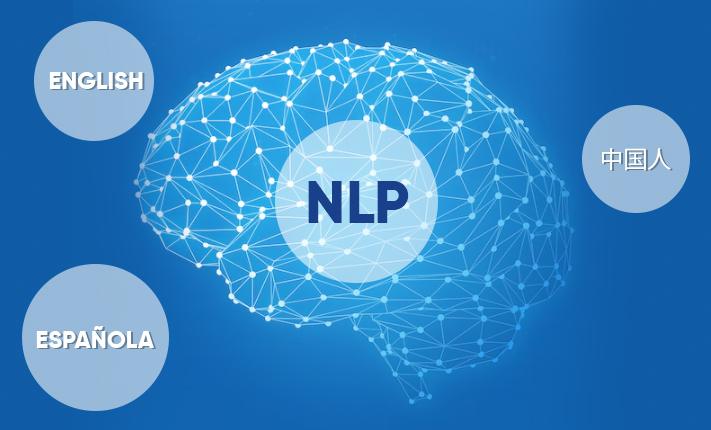In today’s data-driven world, organizations are constantly seeking innovative ways to extract meaningful insights from vast amounts of information. One of the most powerful tools that have emerged for enhancing data analysis is Natural Language Processing (NLP). By leveraging a Natural Language Processing Service, businesses can unlock the full potential of unstructured data, such as customer reviews, social media content, and emails, to derive valuable insights that drive smarter decision-making.
What is Natural Language Processing (NLP)?
Natural Language Processing (NLP) is a subfield of Artificial Intelligence (AI) that focuses on enabling computers to understand, interpret, and generate human language. This technology allows machines to analyze and process text and speech data in ways that mirror human understanding. A Natural Language Processing Service helps businesses leverage this powerful tool to gain actionable insights from large datasets.
By incorporating Natural Language Processing into data analysis, organizations can efficiently process unstructured data, which constitutes about 80% of the data generated today. Whether it’s customer feedback, emails, or online reviews, NLP makes it possible to analyze this data at scale, allowing businesses to uncover trends, patterns, and sentiments.
The Importance of Natural Language Processing Service in Data Analysis
Data analysis traditionally relied heavily on structured data, which is organized and easy to process. However, unstructured data, such as text and voice, presents unique challenges in terms of extraction, interpretation, and analysis. A Natural Language Processing Service enables businesses to tackle these challenges by processing vast amounts of unstructured data efficiently.
Some of the key ways in which Natural Language Processing Service enhances data analysis include:
- Sentiment Analysis
- One of the most valuable applications of NLP in data analysis is sentiment analysis. By using a Natural Language Processing Service, businesses can analyze customer opinions and emotions embedded in social media posts, reviews, or surveys. NLP-powered tools can automatically classify text as positive, negative, or neutral, allowing organizations to gain deeper insights into how customers feel about their products or services.
- Text Classification and Categorization
- Text data is often vast and diverse, making it difficult to analyze manually. With NLP, businesses can categorize text into predefined categories, making it easier to organize and retrieve information. For example, a Natural Language Processing (NLP) can help classify customer complaints, feedback, or inquiries into relevant topics, such as product quality, delivery issues, or customer service, facilitating faster responses and more targeted analysis.
- Named Entity Recognition (NER)
- Named Entity Recognition is another powerful feature of NLP. It involves identifying and categorizing key entities in text, such as people, organizations, locations, dates, and more. A Natural Language Processing Service can extract these important entities from large datasets, which is useful for analyzing news articles, legal documents, or financial reports.
- Topic Modeling
- Topic modeling is a technique that identifies the underlying topics within a collection of text data. By utilizing NLP, businesses can extract key themes from large volumes of text, helping organizations understand emerging trends and areas of interest. A Natural Language Processing Service can analyze content such as blogs, articles, or forums to automatically group similar topics together, making it easier for businesses to identify relevant insights.
- Text Summarization
- With an overwhelming amount of text data available, sifting through everything to find important information can be a time-consuming task. NLP-powered summarization tools help organizations extract key points from long documents, reports, or articles. By leveraging a Natural Language Processing (NLP), businesses can automatically generate concise summaries of complex documents, saving time and improving efficiency in data analysis.
How a Natural Language Processing Service Facilitates Seamless Data Analysis
Integrating a Natural Language Processing Service into your data analysis workflow offers several advantages:
Scalability: NLP can handle large volumes of unstructured data at scale, making it easy to analyze vast amounts of information in real-time. This scalability is essential for businesses that need to process huge datasets from diverse sources.
Automation: Many traditional data analysis tasks, such as data cleaning, categorization, and sentiment analysis, can be automated using NLP. This reduces manual efforts and accelerates decision-making.
Accuracy: NLP algorithms are designed to understand the nuances of human language, leading to more accurate analysis of text data. With the right Natural Language Processing Service, businesses can ensure they extract relevant insights from their data with precision.
Conclusion
As businesses continue to generate and rely on large volumes of data, adopting Natural Language Processing (NLP) is crucial for efficient and insightful data analysis. By utilizing NLP, companies can tap into unstructured data, automate data processing tasks, and derive valuable insights from customer feedback, online reviews, and much more.
A Natural Language Processing Service not only enhances your data analysis capabilities but also helps you make more informed, data-driven decisions. If you’re looking to transform your approach to data analysis, consider integrating NLP into your processes and experience the benefits of seamless, intelligent insights.
Stay updated with our latest news and offerings! Follow us on Facebook, Instagram, and LinkedIn.

